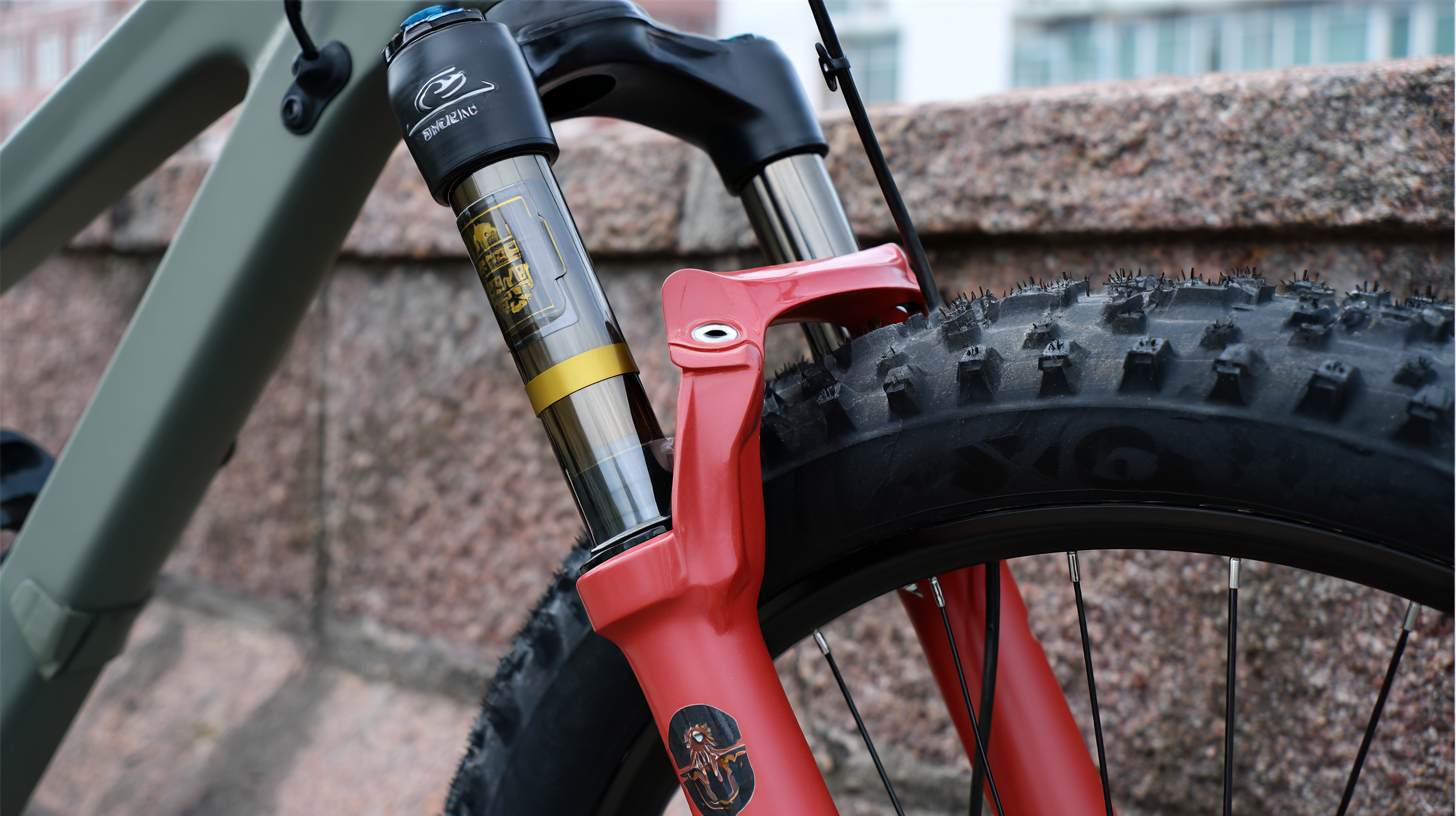The global mountain biking market has seen a significant surge in popularity, with 26 inch mountain bike forks emerging as a critical component for performance and safety. According to a recent report by Research and Markets, the mountain bike segment is expected to grow at a compounded annual growth rate (CAGR) of 5.1% from 2021 to 2026, driven by increasing participation in outdoor activities and advancements in bicycle technology. However, navigating the complex landscape of import and export certifications for these specialized components can be daunting for manufacturers and retailers alike. Understanding the certification processes not only ensures compliance with international trade regulations but also enhances product reliability, which is essential for maintaining consumer trust in such a competitive market. This blog will explore the various types of certifications needed for 26 inch mountain bike forks, providing insights that can help stakeholders streamline their import and export strategies effectively.

When it comes to mountain biking, understanding the significance of import and export certifications is crucial, especially for components like bike forks. These certifications ensure that products meet the necessary safety and quality standards, which are particularly important for performance-driven items. By navigating the often complex landscape of certifications, manufacturers can not only adhere to regional regulations but also enhance their reputation in the market. This is vital in a sport where safety cannot be compromised and where the right gear plays a significant role in a rider's experience.

Moreover, with the increasing focus on protection standards within the biking community, certifications help instill confidence in consumers. As riders push their limits on challenging terrains, knowing that their equipment, such as mountain bike forks, complies with stringent standards allows them to focus on their performance rather than worry about potential safety issues. With every jump and curve tackled, a well-certified fork can significantly impact a biker’s ability to enjoy the ride while minimizing the risks associated with high-speed adventures.
When importing 26-inch mountain bike forks, understanding the key certifications is vital to ensure compliance with safety and quality standards. Certifications not only help in maintaining product integrity but also facilitate smoother customs processes. Among the critical certifications to consider are ISO 9001 for quality management, CE marking indicating safety compliance in Europe, and CPSC for adherence to U.S. consumer product safety regulations.
Tip: Before finalizing your import, verify that the manufacturer possesses these certifications. Request documentation to establish credibility and avoid potential issues during importation.
Additionally, it’s essential to consider environmental certifications such as RoHS, which limits hazardous substances in manufacturing. These certifications often appeal to eco-conscious consumers and can enhance the marketability of your products.
Tip: Stay updated on regional certification requirements, as they may vary between countries. Engaging with a local expert can streamline the process and provide insights into specific paperwork needed for a successful import.

When navigating the complex landscape of import and export certifications for 26-inch mountain bike forks, understanding international compliance standards is paramount. According to a report by the International Bicycle Fund, the global bicycle parts market is projected to grow at an annual rate of 4.2% through 2025, underscoring the increasing demand for certified components. Adhering to standards such as ISO 4210, which outlines safety requirements for bicycles, ensures that manufacturers not only meet regulatory expectations but also enhance consumer trust.
To ensure compliance, manufacturers must engage in rigorous testing and certification processes. The American National Standards Institute (ANSI) emphasizes the importance of third-party evaluations to validate that bike forks can withstand various stresses and environmental conditions. Furthermore, documentation such as Certificates of Compliance (CoC) and product specifications must be meticulously maintained. A study by the Cycling Industry Association highlights that compliance with international standards not only minimizes the risk of recalls but also significantly boosts a product's marketability. By prioritizing these steps, manufacturers can navigate the intricacies of global trade while providing high-quality and reliable bike components.
This chart illustrates the number of certifications acquired for 26 inch mountain bike forks. Each certification reflects a specific international standard that ensures compliance and safety for bike components. The data shows that ISO 4210 has the highest number of certifications followed by CE Marking and EN 14766.
Navigating the import and export process for mountain bike components, particularly from leading manufacturers of 26-inch forks, can be daunting. However, streamlining this process is crucial for businesses looking to capitalize on this booming market. One effective strategy is to establish clear communication with suppliers and customs agents early in the process. This involves understanding the specific certifications required for importing and exporting bike components, such as safety and quality standards that can vary by country. Being proactive in gathering all necessary documentation helps to mitigate delays.
Additionally, leveraging technology can significantly enhance efficiency. Utilizing inventory management software can assist in tracking shipments and ensuring compliance with regulations. Establishing a streamlined logistics plan, including selecting reliable freight forwarders familiar with the bike component industry, can reduce potential hiccups during transport. Regular training and updates regarding import-export regulations for your team will further equip them to handle issues as they arise, ensuring a smoother workflow and timely deliveries. With these practices in place, businesses can focus on growth while navigating the complexities of international trade with confidence.
| Certification Type | Description | Required Documents | Processing Time | Validity Period |
|---|---|---|---|---|
| ISO 9001 | Quality Management Systems Certification | Quality manual, Internal audit reports, Management review outputs | 3-6 months | 3 years |
| CE Marking | Conformity to Health, Safety, and Environmental Protection Standards | Technical documentation, Test reports, Declaration of conformity | 1-4 months | Indefinite, subject to standards updates |
| RoHS Compliance | Restriction of Hazardous Substances in Electrical and Electronic Equipment | Test reports, Supplier declarations, Technical file | 2-5 months | 3 years |
| TUV Certification | Testing and Certification of Products for Safety | Test reports, Inspection reports, Technical documentation | 2-6 months | 3 years |
Navigating the complexities of import and export certifications for mountain bike forks can be daunting. One common challenge manufacturers face is ensuring their products meet the various regulatory standards, which differ significantly across regions. According to a report by
International Trade Administration (ITA), over
30% of export-related complications stem from compliance issues, leading to delays and financial losses. To mitigate these risks, companies must invest in understanding regional certification requirements thoroughly, which may include
ISO standards, CE marking in Europe, and others.
Another challenge is the intricacy of documentation. A survey conducted by the
World Trade Organization (WTO) indicated that inadequate documentation can result in
up to 25% of shipment delays. Businesses must streamline their documentation processes, ensuring that they include all required certifications like safety and environmental assessments. Employing an experienced compliance officer or consultant can significantly ease this process, ensuring that all necessary paperwork is correctly handled and submitted timely.
By focusing on these areas, mountain bike manufacturers can enhance their certification strategies, leading to smoother import and export operations.
